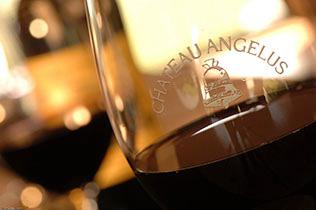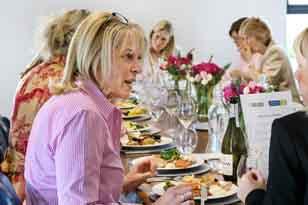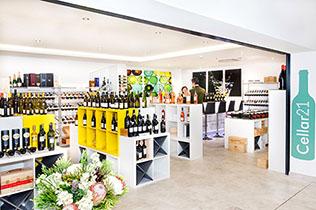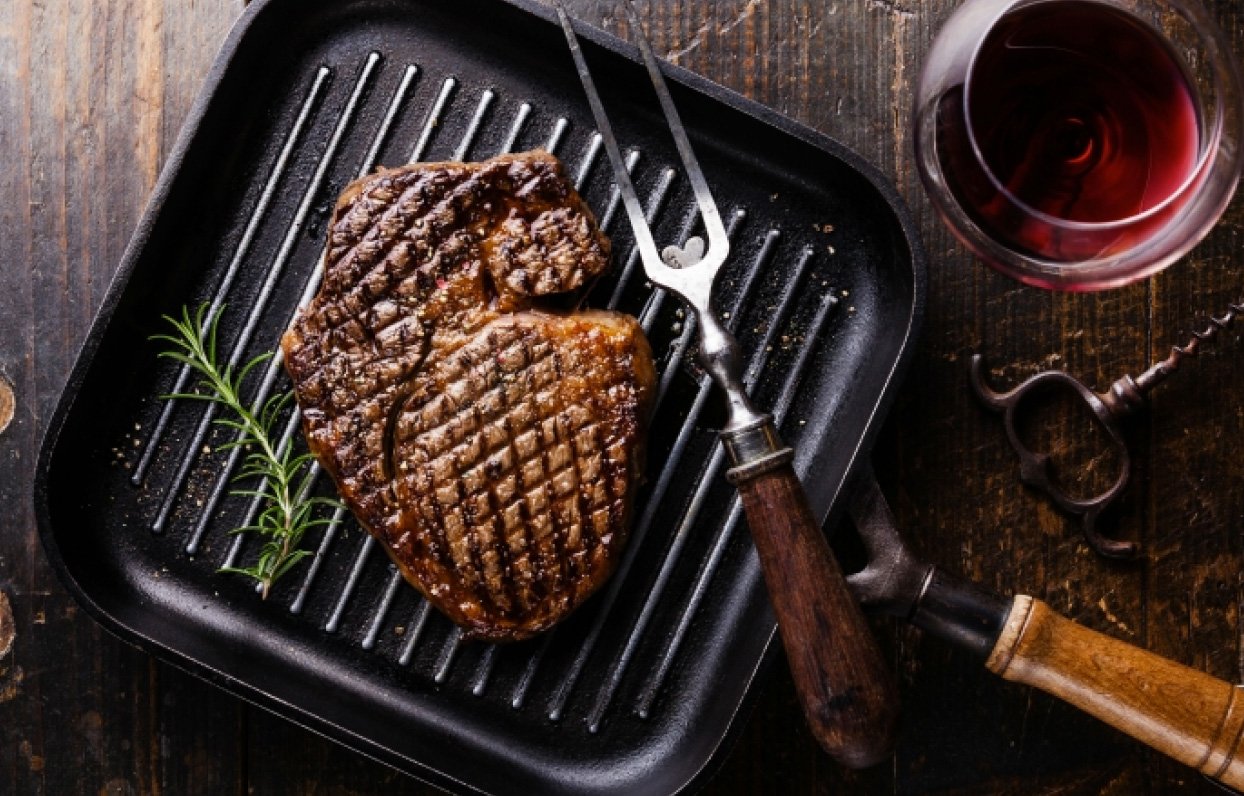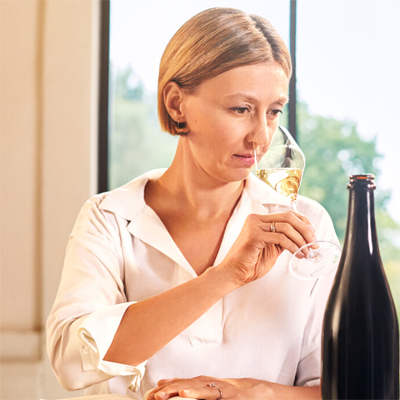

Cherie Spriggs
Head Winemaker at Nyetimber
"Once more people get used to the idea that “Champagne” is merely a geographical indicator, and exceptional sparkling wines can come from both sides of the channel, I think there will be many more people trying out English sparkling wines."
An Introduction to Nyetimber
Nyetimber is one of England's leading sparkling wine producers. Located in southern England in West Sussex and Hampshire, the south facing Nyetimber vineyards are planted on sandy or chalk soils very similar to those of Champagne. Planted with the three Champagne varieties; Chardonnay, Pinot Noir and Pinot Meunier. Cherie Spriggs is head winemaker at Nyetimber, she has vast experience of winemaking and has made wine all over the world. In our opinion, Nyetimber sparkling wines give many Grand Marque Champagnes a run for their money. We recently caught up with Cherie to talk about winemaking in England, here’s what she had to say…
Q & A
You've been head winemaker since 2007, how did you discover Nyetimber?
We discovered Nyetimber in 2001, when my father gave us a bottle. When we tasted the wine, we detected a texture and potential in the wine that we hadn’t experienced anywhere else in the world. So at the start of 2007, we (my husband Brad Greatrix – who is the winemaker with me) were looking for jobs in Canada; we were out for a walk one evening and Brad suggested we apply for our “dream jobs”. The first thing that jumped into my mind was the taste of Nyetimber we’d had years before. So, I sent an email to Eric Heerema (the owner and CEO of Nyetimber) and he replied saying that they were looking for two qualified winemakers and to send our CV’s. The rest is history!
Describe the essence of Nyetimber and how it stands out?
Nyetimber represents quality. Nyetimber has always had one aim: to make the finest English Sparkling Wine; one to rival the very best in the world, including Champagne. In 1988, Nyetimber planted its first vines of the three celebrated varieties found in Champagne: Chardonnay, Pinot Noir and Pinot Meunier. Nyetimber is crafted from 100% estate grown grapes which allows us to have complete quality control over the fruit that we use thus making what we produce very unique and special. These grapes are taste-tested before being handpicked at the optimal time before the sparkling wine is produced using the traditional method. At Nyetimber we feel that it is absolutely necessary to cellar the wine for three years minimum so that the wine can gain depth and complexity before release. I am a perfectionist, I oversee everything from the planting and harvesting to blending. I don’t plan the harvest in advance. Instead, I’m out there every day, analysing the grapes, tasting them, capturing exactly the right window. The House is regarded as England’s finest and first wine producers having started the industry and we are committed to producing wines of a Grand Marque standard.
What challenges do you face as an English wine producer?
The weather first and foremost! The ‘optimal growing conditions’ in both climate and temperature found in the Champagne region of France are also found in England and particularly in the South which allows us to grow grapes. However, over the years we have experienced changes to the UK climate due to global warming which in turn is bringing new challenges to grape growing. For example, 2012 was the wettest and coldest year we have experienced in the last 100 years and the harvest would not have achieved our quality standards, so we took the difficult decision not to make wine that year- we did not want to compromise on the quality. We think in terms of “generations rather than years”- you have to play the long game in this industry to get what you want out of it.
What do you think is the future for English sparkling wine?
The future is very bright for English sparkling wine producers, but collectively we still have a lot of education to do for wine drinkers, both locally and overseas. For many it’s still commonly assumed that “Champagne” on the label is some sort of quality indicator, and sparkling wine is something less. In fact Champagne is just a sparkling wine that comes from vineyards in the region of Champagne. English sparkling wines come from vineyards along the south part of England, with similar soils to those found in France. Once more people get used to the idea that “Champagne” is merely a geographical indicator, and exceptional sparkling wines can come from both sides of the channel, I think there will be many more people trying out English sparkling wines.
What are your top 3 house vintages from Nyetimber?
This is so hard – all the vintages are truly fantastic! However, if I had to pick then I would choose the following: 2009 – I love the balance we’ve achieved in these wines. They are incredibly enjoyable to drink now, but also have a very long ageing potential. 2003 – Was a warm summer in England which produced some special wines. Peter Morgan was Nyetimber’s winemaker at the time and I think he did an excellent job to capture the essence of the vintage. 1992 – Nyetimber’s first vintage and the 1992 Blanc de Blancs is still drinking well. This is a wine that got many people’s attention in the late ‘90s and started to open people’s eyes to how great English sparkling wines can be.
How does Nyetimber winemaking techniques differ from those of Champagne?
There is no difference, we use exactly the same Traditional Method like they use in Champagne. However, we also have all our own vineyards and only use 100% estate owned and grown grapes, which is less common in some Champagne, we also don’t have the rigid rules of Champagne so can be free to make ‘winemaking’ choices that suit our constant pursuit of quality and perfection.
Putting the domestic market aside, where can Nyetimber wines be found?
We currently export to Japan and Denmark at the moment, we hope to broaden our international sales market in due course and expand into Asia and the US.
When you're not drinking Nyetimber, what do you enjoy drinking?
Of the classical wines I enjoy Red Burgundy with Volnay having a particular soft spot for me and I also enjoy a good Chablis. Barolo is a wine that makes me smile. I do like some unconventional choices as well such as a Gewurztraminer from the Okanagan. If not wine then I really enjoy a variety of teas.

